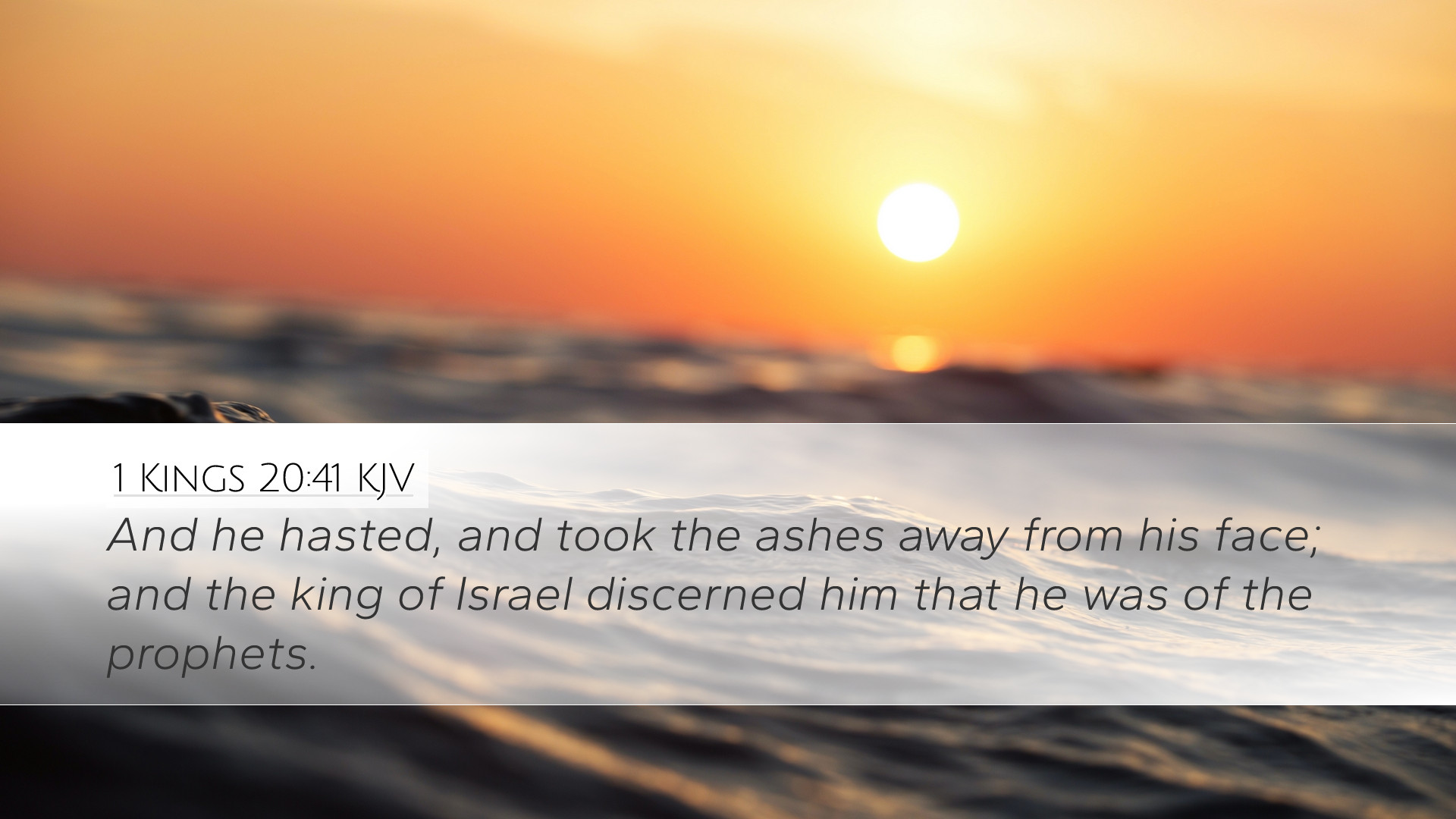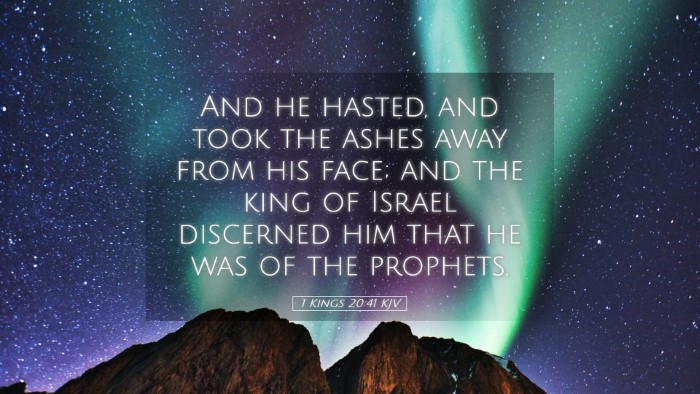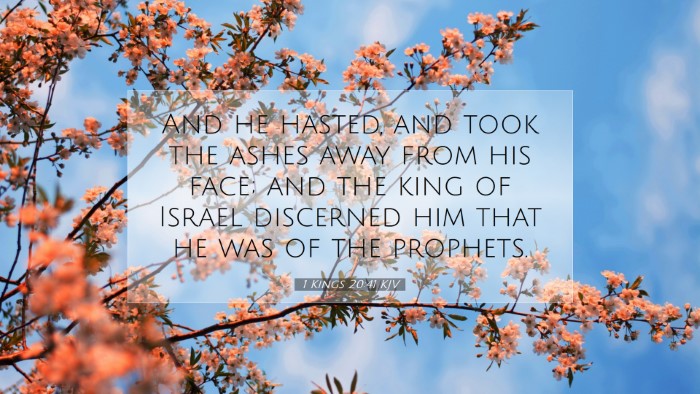Commentary on 1 Kings 20:41
The verse states: "So he hasted, and took the ashes away from his face; and the king of Israel discerned him that he was of the prophets."
This verse comes in the context of a powerful narrative between the prophet Elisha and the king of Israel, Ahab. It follows a confrontation regarding Ahab's military predicament against Ben-hadad, the king of Syria. The text emphasizes the prophetic role and the thematic elements of judgment, mercy, and divine intervention.
Contextual Background
In the preceding chapters leading up to 1 Kings 20, we witness the increasing aggression from Ben-hadad and his armies toward Israel. Ahab, though often portrayed as a wicked king, finds himself receiving counsel and warnings from prophets—signifying that God remains actively involved in the affairs of His people despite their sinfulness.
Insights from Public Domain Commentaries
Matthew Henry's Commentary
Matthew Henry emphasizes the role of divine judgment and the importance of the prophet's anointing in the life of Israel's king. He notes that the hastiness of the prophet to remove the ashes signifies a keen understanding of the gravity of the situation. The ashes symbolize mourning and repentance, aligning with the prophet's role as a harbinger of God's word during times of national crisis.
Henry adds that the ability of the king to discern the prophet signifies an understanding of divine politics, where God’s representatives often appear among the leaders. The contrast between the physical encounter of the prophet and the internal struggle of Ahab serves to illustrate the path toward repentance that Ahab neglects.
Albert Barnes' Notes on the Bible
Albert Barnes focuses on the interaction between the prophet and Ahab. He observes that the act of removing the ashes signifies a transition from mourning to readiness, as the prophet is prepared to deliver a message from God. Barnes highlights that this action points to a moment of revelation, where the true intentions of God are unveiled to the king.
Moreover, Barnes notes that in recognizing the prophet, Ahab demonstrates a moment of realization about the spiritual authority that governs his kingdom and the fate of Israel. This underscores the necessity of leaders acknowledging divine instructions rather than relying solely on their political acumen.
Adam Clarke's Commentary
Adam Clarke provides a more textual analysis, remarking on the significance of the prophet being in disguise and the implications of his unceremonious appearance. Clarke suggests that the ashes were a reminder of mortality and judgment, driving home the vital message that even kings are subject to God's counsel.
In Clarke’s interpretation, the discernment of the king reflects not just recognition but an inner turmoil regarding his own actions and choices. Ahab's confrontation with the prophet leaves him vulnerable to true introspection, which is further complicated by his previous disregard for prophetic warning.
Theological Themes
- Divine Sovereignty: The passage illustrates God's ultimate authority over Israel, showing that even in times of disobedience, God communicates through His prophets.
- Judgment and Mercy: The narrative encapsulates the profound mercy offered to Ahab despite his rebellious nature. The kingship’s acknowledgment of the prophet signifies a glimmer of hope for repentance.
- Role of Prophets: This account emphasizes the critical role prophets play in guiding national leaders, highlighting the importance of heeding spiritual authority in governance.
- Human Responsibility: Ahab’s responsibility to act upon the prophetic message showcases the dual aspect of divine providence and human agency.
Applications for Leaders and Scholars
For pastors, this verse serves as a powerful reminder of the need for spiritual discernment and the importance of listening to prophetic voices in our communities. It challenges leaders to consider how they respond to God's instructions, especially in the context of societal pressures and personal ambition.
Theology students and scholars can delve deeper into the implications of prophetic discourse within leadership frameworks as evidenced here. The interplay between Ahab's authority and the prophetic message provides rich material for understanding the dynamics of power and accountability.
Ultimately, 1 Kings 20:41 invites reflection on how contemporary Christian leadership navigates the complexities of faith, governance, and responsibility in a world yearning for godly wisdom and intervention.


